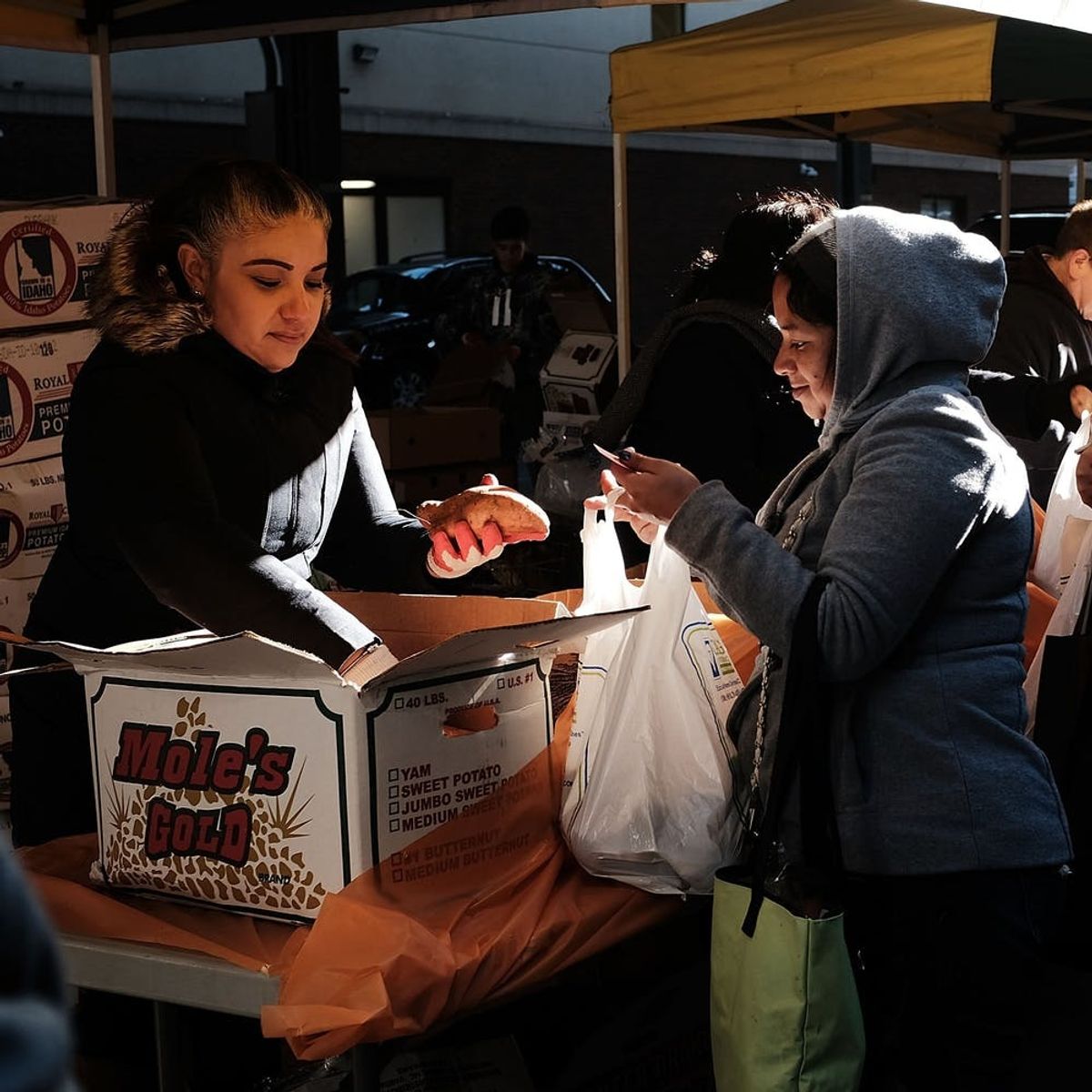With more government workers turning to food banks, plus uncertain funding for SNAP, food pantries forecast higher demand.
As Government Shutdown Continues, Food Pantries Face Major Strain

Thursday marks the 27th day the federal government has been in a state of partial shutdown, as President Trump continues to demand that Democrats approve nearly $6 billion in funding for a border wall.
Tens of thousands of federal workers have been showing up for their duties without pay, or have been told not to show up for work at all, in what has become the longest partial shutdown of the government in US history. As the president orders tens of thousands more government workers back to work without paychecks (including more than half of IRS employees), many federal employees directly impacted by the shutdown are now in dire financial straits. The lack of pay has put some federal workers in the same position as millions of other Americans who are food insecure, creating more strain on already thin resources.
Food insecurity — being in a position where a person can’t afford or otherwise access adequate, nutritious food on a day-to-day basis — is a persistent problem in the United States. According to US Department of Agriculture figures, around 15 million families (or 12 percent of the US population) dealt with food insecurity in 2017. Last year, Fast Company noted that the number of people facing food insecurity in the US in 2017 was still greater than before the “great recession,” and rarely in recent years has the percentage of food-insecure people decreased by a statically significant amount.

Weeks into the partial shutdown, reports from states around the country indicate that food banks are having a difficult time keeping up with the demand for food now that growing numbers of federal workers, in addition to low-income community members, are turning to food banks to help feed their families.
In Massachusetts, according to the Boston Herald, food banks and activists are calling on Governor Charlie Baker to create an emergency plan in the event that the shutdown outlasts the resources of food banks in the state. In Florida, a local nonprofit organization called Feeding Tampa Bay says it is treating the possibility of a further prolonged shutdown “like a hurricane,” and considering a number of options to service Florida food banks that must provide for more people than usual. The Tampa Bay Times reports that Feeding Tampa Bay and the United Way have been providing “pop-up food banks” at airports for TSA and Customs and Border Protection agents, and Federal Aviation Administration employees.
Compounding and complicating the increased demand on food banks are the limits on the Supplemental Nutrition Assistance Program (SNAP, which is also sometimes still referred to as food stamps). Presently, the USDA is still funding SNAP through February, and SNAP recipients started receiving their February funds as early as Wednesday. State officials across the country, however, are cautioning SNAP recipients that though the funds for February are being distributed now, in mid-January, families will need to budget carefully to ensure those funds will last through the end of next month.

Meanwhile, federal employees who are currently not being paid and need help affording food, and may qualify for SNAP, can’t even apply because of the shutdown. The federal workers who process SNAP applications are not working, and therefore nobody can apply for SNAP benefits, including federal workers themselves.
And though the USDA is distributing next month’s SNAP benefits early, there is currently no SNAP funding plan for the following months, POLITICO reports. Because SNAP funds might be unavailable for an unknown amount of time after the end of February, food banks are anticipating yet more need from local communities.
The Trump administration has already been chipping away at SNAP, including by making it difficult or impossible for undocumented immigrants to apply for SNAP, and empowering states to deny SNAP benefits to people who do not meet certain unemployment criteria. Millions of low-income Americans, many of them women with kids, depend on SNAP to have adequate food for themselves and/or their families.
What do you think? Tell us on Twitter @BritandCo.
(Photos by Spencer Platt/Getty Images)

















